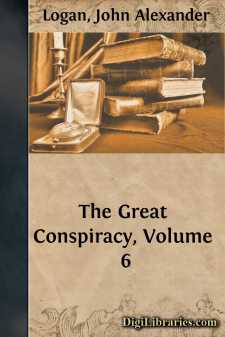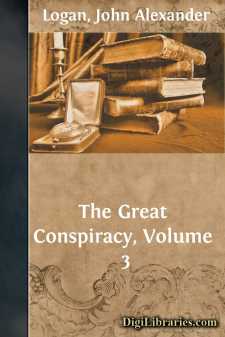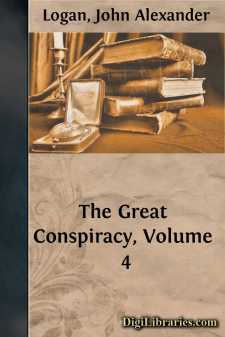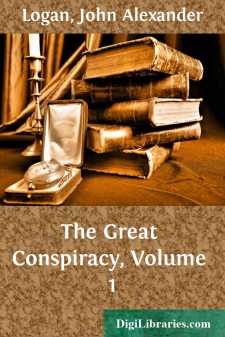Categories
- Antiques & Collectibles 13
- Architecture 36
- Art 48
- Bibles 22
- Biography & Autobiography 813
- Body, Mind & Spirit 142
- Business & Economics 28
- Children's Books 14
- Children's Fiction 11
- Computers 4
- Cooking 94
- Crafts & Hobbies 4
- Drama 346
- Education 46
- Family & Relationships 57
- Fiction 11829
- Games 19
- Gardening 17
- Health & Fitness 34
- History 1377
- House & Home 1
- Humor 147
- Juvenile Fiction 1873
- Juvenile Nonfiction 202
- Language Arts & Disciplines 88
- Law 16
- Literary Collections 686
- Literary Criticism 179
- Mathematics 13
- Medical 41
- Music 40
- Nature 179
- Non-Classifiable 1768
- Performing Arts 7
- Periodicals 1453
- Philosophy 64
- Photography 2
- Poetry 896
- Political Science 203
- Psychology 42
- Reference 154
- Religion 513
- Science 126
- Self-Help 84
- Social Science 81
- Sports & Recreation 34
- Study Aids 3
- Technology & Engineering 59
- Transportation 23
- Travel 463
- True Crime 29
The Great Conspiracy, Volume 6
Description:
Excerpt
CHAPTER XXII.
FREEDOM'S SUN STILL RISING.
After President Lincoln had issued his Proclamation of Emancipation, the friends of Freedom clearly perceived—and none of them more clearly than himself that until the incorporation of that great Act into the Constitution of the United States itself, there could be no real assurance of safety to the liberties of the emancipated; that unless this were done there would be left, even after the suppression of the Rebellion, a living spark of dissension which might at any time again be fanned into the flames of Civil War.
Hence, at all proper times, Mr. Lincoln favored and even urged Congressional action upon the subject. It was not, however, until the following year that definite action may be said to have commenced in Congress toward that end; and, as Congress was slow, he found it necessary to say in his third Annual Message: "while I remain in my present position I shall not attempt to retract or modify the Emancipation Proclamation; nor shall I return to Slavery any person who is Free by the terms of that Proclamation, or by any of the Acts of Congress,"
Meantime, however, occurred the series of glorious Union victories in the West, ending with the surrender to Grant's triumphant Forces on the 4th of July, 1863, of Vicksburg—"the Gibraltar of the West"—with its Garrison, Army, and enormous quantities of arms and munitions of war; thus closing a brilliant and successful Campaign with a blow which literally "broke the back" of the Rebellion; while, almost simultaneously, July 1-3, the Union Forces of the East, under Meade, gained the great victory of Gettysburg, and, driving the hosts of Lee from Pennsylvania, put a second and final end to Rebel invasion of Northern soil; gaining it, on ground dedicated by President Lincoln, before that year had closed—as a place of sepulture for the Patriot-soldiers who there had fallen in a brief, touching and immortal Address, which every American child should learn by heart, and every American adult ponder deeply, as embodying the very essence of true Republicanism.
[President Lincoln's Address, when the National Cemetery at Gettysburg, Pa., was dedicated Nov. 19, 1863, was in these memorable words:
"Fourscore and seven years ago, our Fathers brought forth upon this continent a new Nation, conceived in Liberty, and dedicated to the proposition that all men are created equal.
"Now we are engaged in a great Civil War, testing whether that Nation, or any Nation, so conceived and so dedicated, can long endure.
"We are met on a great battlefield of that War. We have come here to dedicate a portion of that field as a final resting-place for those who here gave their lives that that Nation might live.
"It is altogether fitting and proper that we should do this.
"But in a larger sense, we can not dedicate, we can not consecrate, we can not hallow, this ground. The brave men, living and dead, who struggled here, have consecrated it far above our power to add or detract.
"The World will little note, nor long remember, what we say here; but it can never forget what they did here....









